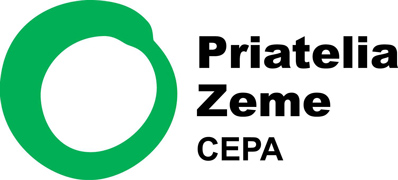Issue Paper, July 7, 2000
The International Monetary Fund (IMF) is currently facing the strongest criticism against it in its 55 year history, due to the fact that its policies have failed to foster economic growth or stem rising levels of poverty, but instead have fostered greater inequality, have caused environmental harm, increased debt dependency and have led to the failure of domestic enterprises, among other negative impacts. Many of these problems can be attributed to the fact that the IMF is extremely untransparent and unaccountable for its actions. This holds true also for the IMF’s activities in the CEE region. What follows is a description of the Center for Environmental Public Advocacy’s (CEPA) failed attempt to obtain important documents from the IMF which would shed light on the institution’s activities in the Slovak Republic. On April 25th, CEPA contacted the IMF's External Relations Department and asked for contact information of IMF officials who could possibly provide information regarding the IMF's activities in Slovakia (and former Czechoslovakia) over the past ten years. In response, departmental representatives stated that they were not allowed to provide such contacts, but instead referred CEPA to the IMF's web page and then later to the Slovak authorities. On June 5th, CEPA sent another request for information to the External Relations Department of the IMF, this time with a specific list of documents which they wished to obtain and which were not available on the IMF web page. The External Relations Department, in reply, forwarded its previous e-mail referring CEPA to the IMF web site and the Slovak authorities. CEPA sent yet another request for the documents and explained their confusion over the IMF's refusal to provide more information, but to this the department sent no reply. In a continued attempt to obtain the documents, CEPA, on June 22, sent the same request to the IMF representative responsible for organizing the up-coming NGO Seminar in Vienna, with the explanation that previous requests to the External Relations Department were unsuccessful. The representative replied with a promise to try to obtain the documents. Six days later, another IMF representative from the External Relations Department replied, again referring CEPA to the IMF web page and to Slovak authorities, but this time also attaching the IMF's policy on Access to its Archives, which was of no help regarding the requested documents. Conclusion: An absolute necessity for effective democratic oversight and transparency is the public's right to access to information. CEPA plans to attend the IMF’s NGO Seminar in Vienna with the hope of obtaining these important documents, however, we fear that the seminar is mainly intended to serve public relations purposes prior to the IMF’s annual general meeting in Prague, as opposed to a genuine opportunity for dialogue and the exchange of information. Thus, as long as the IMF continues to deny the public the fundamental right of access to information, attempts at public consultation and talk of reform will ring hollow and will be viewed skeptically by civil society in the CEE region.
Note:
Communication with relevant Slovak authorities has thus far proved futile, though efforts are continuing. Information requested of the IMF by CEPA as they relate to Slovakia and the former Czechoslovakia:
Article IV Consultations and their supporting documents, including staff reports and staff appraisals The Article IV consultations occur annually for every IMF-member country. The staff report is the outcome of this consultation which is a review of the macro sustainability (and structural and governance issues which affect macro stability) of the country.
Letter of Intent Letters of Intent set out what actions (i.e. conditions) a government will take to reform its economy in return for receiving IMF support (i.e. either standby loans or ESAF/PRGF loans).
Memorandum of Economic and Financial Policies or Policy Framework Paper (PFP) (as applicable) Though the PFP no longer exists, as it has been replaced by the PRSP, it was intended to be a joint WB-IMF document, but tended to be just IMF owned. It broadly set out the economic situation for the country and the reforms that should be undertaken.
Detailed summaries of Board discussions of Slovakia's Article IV consultations, loan reviews and loan approvals
Formal or informal recommendations submitted to the Slovak government as a result of IMF missions to Slovakia over the last couple of years, as well as IMF summaries/evaluations of how these recommendations have been implemented by the Slovak government.

